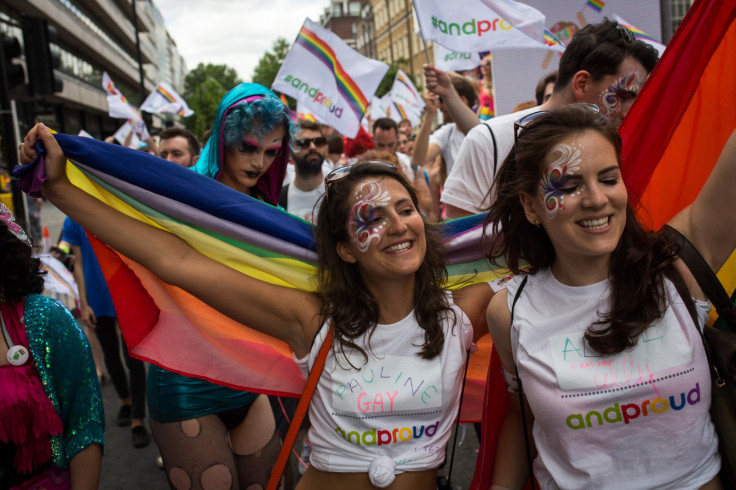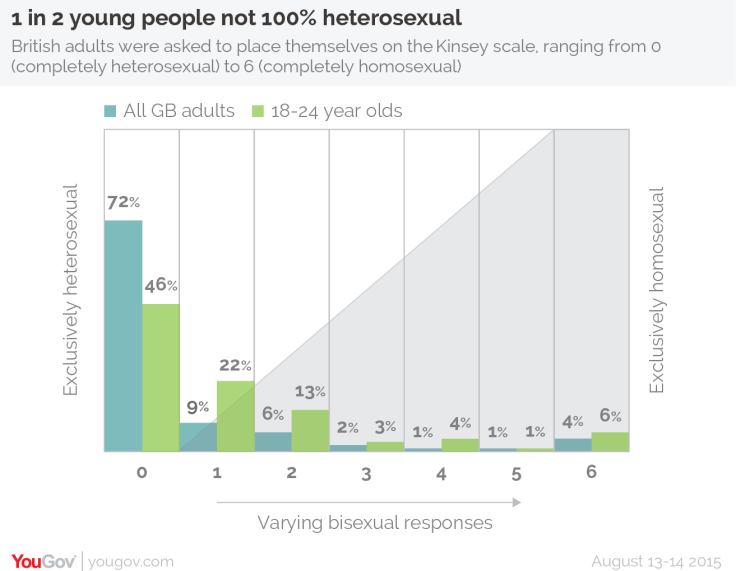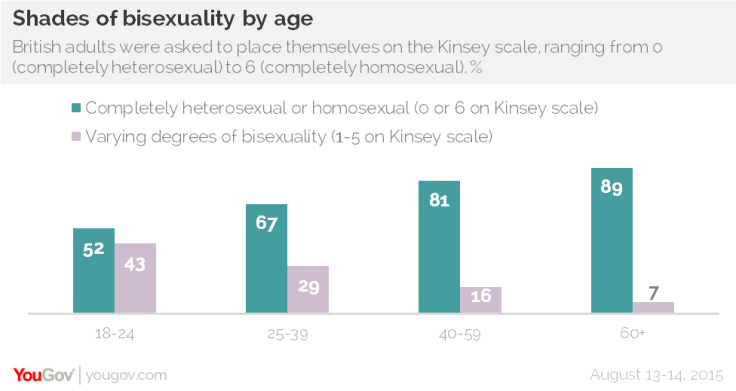Sexual orientation in the UK: Half of young people say they are not 100% heterosexual

According to a new YouGov survey, 49% of 18-24 year-olds in Britain define themselves as something other than completely heterosexual. The Kinsey scale invented in the 1940s placed people on a range of sexual preferences from exclusively heterosexual at 0 to exclusively homosexual at 6.
In the YouGov study, individuals were asked to put themselves on that sexuality scale. In total, 72% of the British public scored themselves at the completely heterosexual end of the scale, while 4% were at the completely homosexual end, with 19% stating they were somewhere in between – classed as bisexual by Kinsey.
One of the most striking findings of the new study is that with each generation, people see their sexuality as less fixed and more fluid. The results for 18-24 year-olds are particularly telling, with 43% placing themselves in the non-binary area between 1 and 5 and 52% place themselves at one end or the other. Of these, only 46% say they are completely heterosexual and 6% as completely homosexual.
Public opinion seems to accept the concept that sexual orientation exists along a continuum, rather than being a either/or choice between being straight and gay. According to YouGov, 60% of heterosexuals support this idea, as do 73% of homosexuals.

Only 28% of heterosexuals believe that "there is no middle ground – you are either heterosexual or you are not".
Kinsey estimated that around 10% of the population was gay, although this percentage was criticised by the American Statistical Association. However, a 2011 Gallup poll asked over 1,000 people in the US "what percentage of Americans today would you say are gay or lesbian?" On average, respondents guessed that 1-in-4 Americans were.
When it comes to breaking down in terms of gay men and women 1.5% of men in the UK say they're gay and only 0.7% of women say the same. But in terms of bisexuality, 0.3% of men select this, compared to 0.5% of women. Slightly more women than men say "don't know" or refuse to answer the question – 3.8% compared to 3.5% of men.

According to research by Biscuit, a website for bisexual women, 38% of respondents have at one point engaged in some form of sexual activity with a same-sex partner, often as part of a group.
Charlotte Dingle, editor-in-chief of Biscuit, told Pink News: "Women are increasingly viewing their own sexuality as fluid. I believe that the old definitions of 'gay', 'straight' and 'bi' are increasingly irrelevant in a society in which an individual's sexual and gender identity is becoming more and more complex and diverse."
© Copyright IBTimes 2025. All rights reserved.




















